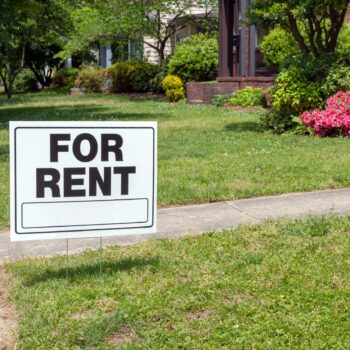What Are 1031 Exchanges For Your Rental Property

As a landlord in the thriving real estate market of Dallas or Fort Worth, Texas, you’re likely always on the lookout for opportunities to maximize your profits and grow your investment portfolio. One strategy that can significantly benefit landlords is the 1031 exchange for rental properties.
1031 exchanges are a great way to maximize your profits as a landlord, but many new to our industry don’t know the power of exchanges. As property managers in Dallas and Fort Worth, we know the ins and outs are here to delve into what 1031 exchanges are, explore why landlords in Texas should consider this option, and outline the steps involved in the process.
What are 1031 Exchanges for Rental Properties?
A 1031 exchange, named after Section 1031 of the Internal Revenue Code, allows landlords to defer capital gains taxes when selling one investment property and reinvesting the proceeds into another “like-kind” property.
Why Consider a 1031 Exchange?
Tax Deferral and Wealth Accumulation
Engaging in a 1031 exchange allows landlords to defer capital gains taxes, enabling them to reinvest the full proceeds from the sale into a new property. This tax deferral strategy is particularly advantageous in a state like Texas, where property values have been on the rise, resulting in substantial capital gains for landlords.
According to Redfin, the median home price in Texas increased by 1.3% in January 2024, compared to that time the past year. This increase in home prices contributes to the potential for significant capital gains in real estate transactions.
Portfolio Diversification
Landlords looking to diversify their investment portfolio can use 1031 exchanges to transition from one type of rental property to another. This flexibility allows for strategic moves, such as shifting from residential to commercial real estate or from one high-demand location to another within Texas.
How to Complete the 1031 Exchange Process:
If you’re ready to diversify your portfolio in the market but want to ensure you maximize your profits, here’s a look at some of the most common steps of the exchange process.
1. Identification Period
After selling a property, landlords have 45 days to identify potential replacement properties. It’s crucial to work with a knowledgeable real estate professional like Classic Property Management during this phase to ensure compliance with the IRS regulations.
2. Purchase Period
Once the replacement property is identified, landlords have 180 days to complete the acquisition. This period includes the initial 45-day identification window, providing ample time for due diligence and negotiation.
3. Qualified Intermediary Involvement
To comply with IRS regulations, landlords must involve a qualified intermediary to facilitate the exchange. The intermediary holds the funds from the sale until they are reinvested in the new property.
How Classic Property Management Can Help
Navigating the complexities of a 1031 exchange requires a skilled and experienced property management team. Classic Property Management, with our extensive knowledge of the Texas real estate market, can provide invaluable assistance throughout the process.
Property Identification Assistance
Our property managers can assist landlords in identifying suitable replacement properties within the specified timeframe, ensuring compliance with IRS regulations. We have our hands in the rental property marketing sector and can help you find the perfect property that meets your needs.
Market Insight
Classic Property Management can offer insights into emerging trends and investment opportunities in Dallas, Fort Worth, and surrounding cities. Trust our management team to help you make the most informed decision with your investments.
Transaction Facilitation
Finding a qualified intermediary can be a daunting task, as they are responsible for keeping your funds secure. Our team can collaborate with qualified intermediaries, title companies, and other professionals involved in the exchange, streamlining the transaction and minimizing potential pitfalls.
Maximize Growth with Strategic 1031 Exchanges
1031 exchanges for rental properties in Texas present an enticing opportunity for landlords to defer taxes, diversify their portfolios, and strategically navigate the dynamic real estate market.
Partnering with a property management team like Classic Property Management can significantly enhance the chances of a successful exchange.
As the Texas real estate landscape continues to evolve, we believe landlords must stay informed and explore innovative strategies to maximize their returns. Are you ready to leverage the power of 1031 exchanges to propel your real estate investments to new heights?
Contact us today to learn more about our services.


